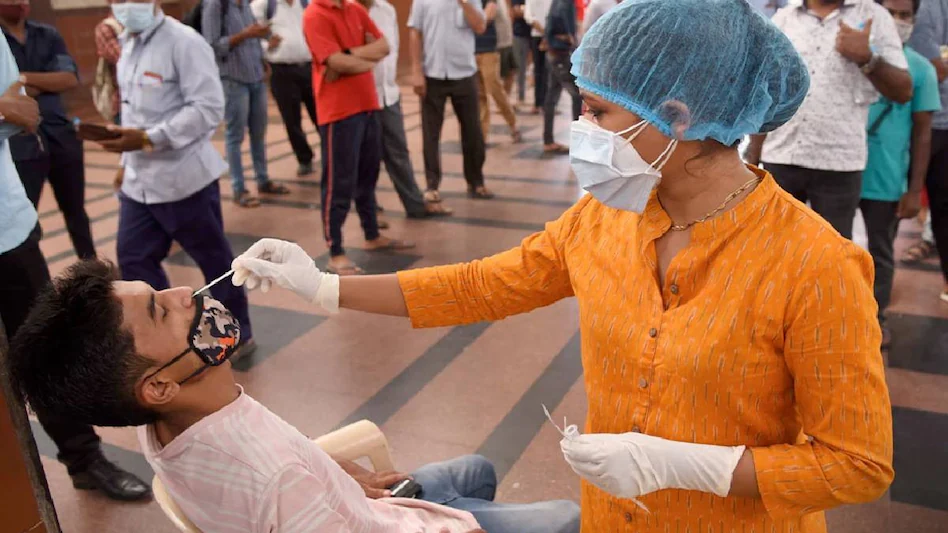
India is once again seeing a rise in COVID-19 infections, sparking conversations around the country's vaccination status and the emergence of new variants. With the JN.1 variant now in circulation, many are asking the same question: Are we seeing the effects of waning vaccine-induced immunity?
The Current COVID-19 Situation in India
As of May 2025, India has reported a moderate increase in COVID-19 cases, with most being mild and manageable. The uptick is not alarming at this stage but has caught the attention of healthcare professionals and public health authorities.
The resurgence is being attributed primarily to a new variant—JN.1, which has spread in parts of Southeast Asia and is now present in India. This development has once again highlighted the importance of understanding how our immunity, especially from vaccines, holds up over time.
What is the JN.1 Variant?
JN.1 is a subvariant of the Omicron strain (descended from BA.2.86). It carries several mutations in its spike protein, which helps it evade the immune system more effectively than earlier variants. Despite being highly transmissible, it does not appear to cause more severe illness.
Typical symptoms reported include:
- Mild fever
- Runny nose
- Sore throat
- Loss of smell or taste
- Fatigue
- Digestive issues in some cases
The majority of cases have been mild, and hospitalizations remain low. However, health experts caution against complacency, especially for vulnerable populations.
Is Waning Vaccine Immunity a Real Concern?
Absolutely. One of the key reasons for the resurgence in cases is waning vaccine-induced immunity. Many people in India received their primary vaccinations and booster doses over a year ago. Without regular boosters, the body’s antibody levels decline, making it easier for new variants like JN.1 to cause infection.
That said, while antibody levels go down over time, the body’s memory immune response—especially T cells and B cells—continues to offer protection from severe illness. So, although you're more likely to catch the virus again, your risk of hospitalization or death remains much lower if you're vaccinated.
How Effective Are Vaccines Against JN.1?
While existing vaccines, including mRNA-based and vector vaccines, have shown reduced effectiveness in preventing infection from JN.1, they still provide robust protection against severe disease and death.
Booster doses—especially those updated to target Omicron subvariants—help raise antibody levels and enhance protection. The World Health Organization (WHO) has recently recommended updating COVID-19 vaccines to target the JN.1 lineage specifically.
WHO’s Updated Guidance on Vaccination
In a recent statement, WHO advised vaccine manufacturers to develop monovalent vaccines focused on the JN.1 strain. This new formulation is expected to provide better protection against the currently circulating variants.
Importantly, WHO emphasizes that vaccinations should not be delayed while waiting for updated shots. Even older vaccine formulations offer meaningful protection, especially when paired with natural immune responses from prior infections.
Should You Get a Booster Now?
If it's been over 6 to 8 months since your last booster, and you're eligible, you should absolutely consider getting one—particularly if you:
- Are over the age of 60
- Have comorbidities (diabetes, heart disease, etc.)
- Are immunocompromised
- Work in high-exposure environments (healthcare, public transport, etc.)
- Consult your doctor to understand which vaccine option is best for you at this stage.
Are We Heading for Another COVID Wave?
At this point, experts do not foresee a major wave similar to those seen in 2021 and 2022. The population has high baseline immunity, and the majority of infections are mild. However, localized spikes are possible, especially in areas with low booster coverage.
- It's essential to continue following preventive measures like:
- Masking in crowded or indoor places
- Regular hand hygiene
- Avoiding unnecessary travel if you’re symptomatic
Final Thoughts: Stay Protected, Stay Informed
COVID-19 is no longer the global emergency it once was, but it hasn’t vanished. The virus continues to evolve, and our immunity—especially without boosters—can wane over time.
Staying up to date on your vaccinations, practicing basic precautions, and being aware of new variants like JN.1 can help keep you and your community safe.
Remember, while vaccines may not stop every infection, they do what matters most—they protect against severe disease and death.
